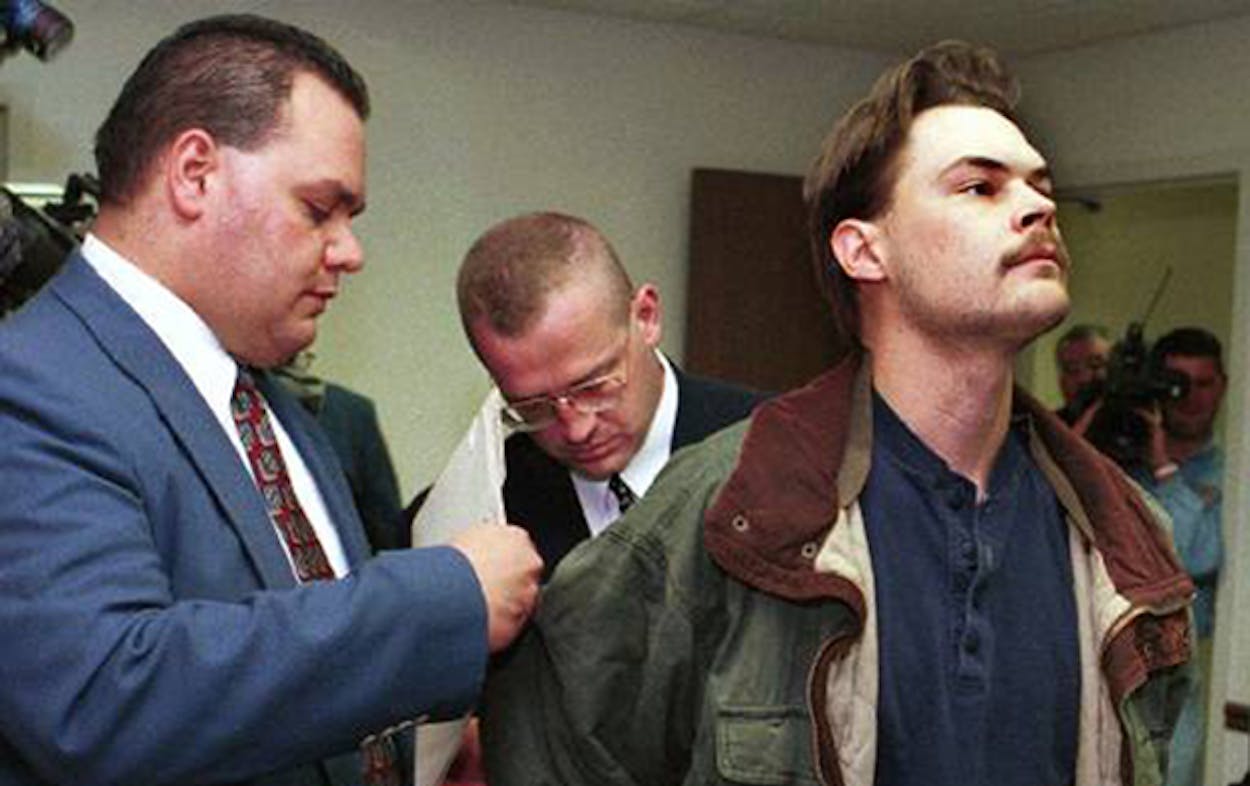Twenty years ago today, four teenage girls were murdered at an “I Can’t Believe It’s Yogurt” in Austin. The Yogurt Shop Murders, as they came to be called, rattled Austin to its core and remain unsolved today.
“It’s hard to believe it’s been twenty years,” wrote Texas Monthly’s Mike Hall in an update to his 9,300-word piece from January 2001 on the Austin Police Department’s fumbling attempts to solve the murders. “The police investigation was torturous, bizarre, incompetent, and heavy handed,” Hall wrote.
Back in 2001, Hall distilled the story this way: “The story of the yogurt shop investigation is, in part, about how a police force with a small-town mentality found itself confronted with a big-time urban crime and tried its best to solve it. But it’s also a tale of how intense political and social pressures brought out, or merely confirmed, the worst instincts in some officers on a police force that was determined to get convictions.”
Thirteen-year-old Amy Ayres and fifteen-year-old Sarah Harbison had gone to visit Sarah’s seventeen-year-old sister Jennifer and her co-worker Eliza Thomas while they closed up the yogurt shop where they worked at West Anderson Lane and Rockwood Lane. Someone came into the shop, shot them, and set a fire to the eatery, presumably to destroy evidence. In the smoldering shop, the police found the bodies of three of the girls, stacked on top of each other like cordwood; all of the girls had been raped.
Eight years after the murder, police spent eighteen hours questioning Mike Scott, one of the many man originally questioned by police about the murder in 1991, Hall reported. Scott penned a “stunningly detailed confession” and named three accomplices: Robert Springsteen, Maurice Pierce, and Forrest Welborn. Springsteen would also confess. Both men would later recant these confessions and it would come to light that Scott’s confession had been coerced, as a picture of a detective holding a gun to Scott’s head in the interrogation room was leaked on the Internet.
The police’s case hinged entirely on those suspect confessions. “None of the suspects’ DNA was found at the scene; indeed, there was not an atom of physical evidence or a single witness that could tie these suspects to the crime,” Hall noted in 2001. Only Scott and Springsteen eventually were convicted, but prosecutors dropped all charges in October 2009 after DNA evidence was retested and linked to an unknown man, the New York Times’ James McKinley reported in 2009.
“The crime helped solidify the feeling among long time citizens that Austin was not a small town anymore,” Robert Hadlock said in his story on KXAN marking the grim anniversary. Austin’s KEYE News also ran a piece on the anniversary, noting that last December, an Austin police officer fatally shot former suspect Maurice Pierce after Pierce stabbed him during a traffic stop. “He had been disturbed since his 2003 release, believing the police were out to get him,” Hall notes. As for the other men?
Welborn now lives in Lockhart, and Springsteen is in West Virginia. Scott’s attorney told Hall that his client also lives out of state.
“Twenty years after the murders, absolutely no one is satisfied: not the parents of the girls, who still grieve daily for their daughters, who would all be in their mid-thirties with kids of their own; not the parents of the boys, who still believe in their innocence; not the members of law enforcement, who still believe in their guilt,” Hall wrote. On Twitter he dubbed the murders “one of the worst unsolved crimes in Texas history.”







